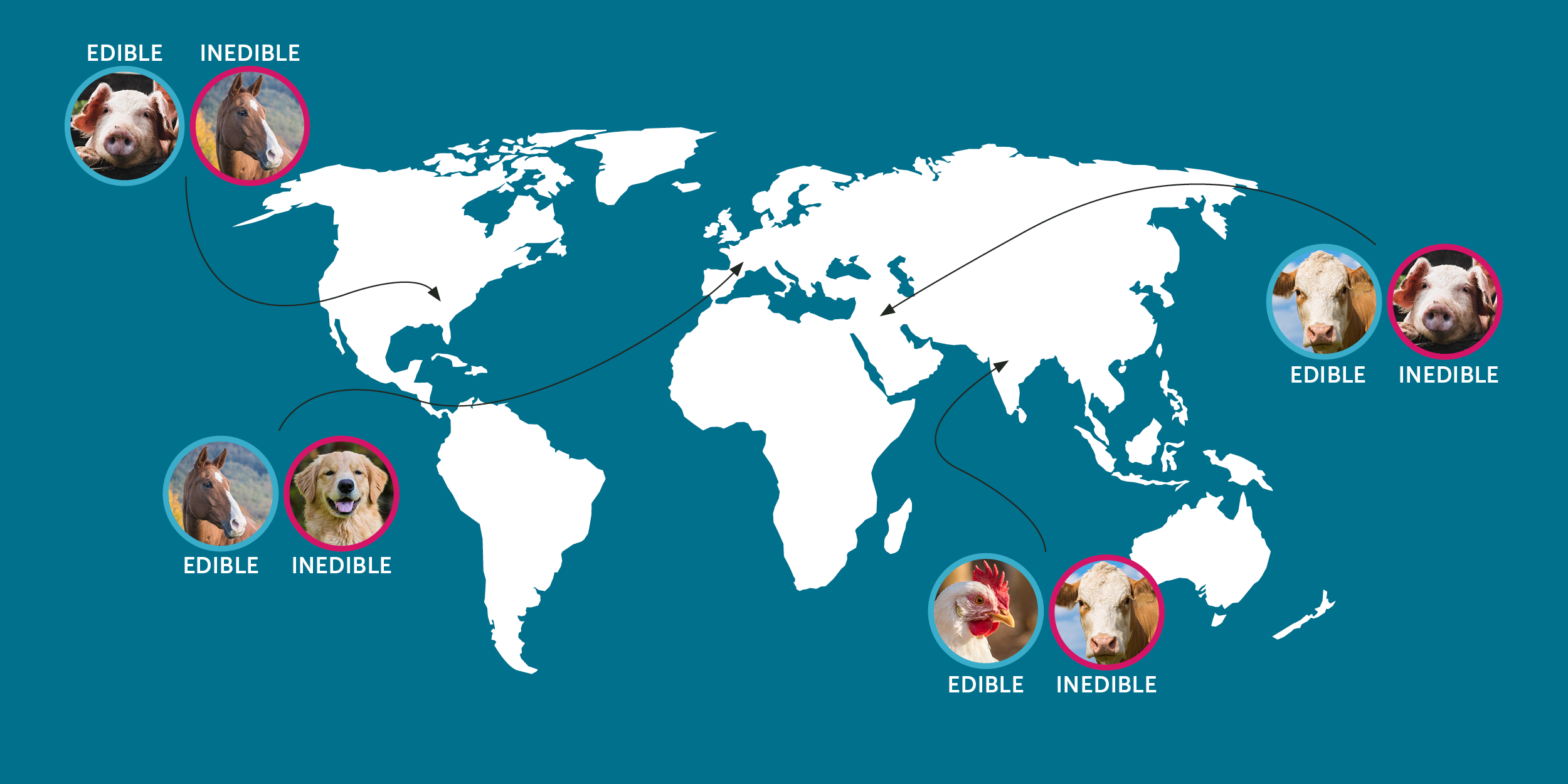Help End Climate Carnism Now
Make Animal Agriculture a Climate Priority
Animal agriculture accounts for more greenhouse gas emissions than the entire transportation sector. That’s all cars and flights combined.
Greenhouse gas emissions from animal-based foods are twice those of plant-based foods.
The food system emits so much greenhouse gas that the world will exceed international climate targets even if all other sources are eliminated.
(Science)
AND YET
Only 29% of people think animal agriculture is a major contributor to climate change.
Why is animal agriculture often absent from discussions about the climate crisis?
Why do conversations about the impact of animal agriculture on the climate crisis often become divisive debates, rather than productive discussions?
Watch and find out:
Take Action Now
What Is Carnism?
As Sustainable As Possible = As Plant-Based As Possible
Make Animal Agriculture a Climate Priority
Take Action Now
Raise awareness of how carnism impacts the climate
Share the video using #EndClimateCarnism.
Share this page.
Whenever you call on an institution or a government to be as sustainable as possible, include being as plant-based as possible as an essential component of this request
Check out these examples of how to put it into practice
- If you’re asking an airline to switch to greener fuel, suggest that it also make its default in-flight meal options plant-based.
- If you’re writing to urge a local government to reduce its carbon emissions, recommend that it make the food provided in all the facilities or institutions it operates as plant-based as possible.
- When you’re urging your national government to work toward its climate targets, include the demand that agricultural subsidies be given to plant-based products, rather than animal-based ones.
- Ask your local organic and/or cooperative stores and restaurants to offer as many plant-based options as possible.
Poll
What Is Carnism?
Carnism is the invisible belief system that conditions people to eat certain animals. Carnism is the reason we virtually never ask why we eat certain animals but not others, or why we eat any animals.
In meat-eating cultures around the world, people learn to classify a handful of animals as edible, and even though the type of species consumed changes from culture to culture, people everywhere learn to think of their own choices as rational and the choices of other cultures as irrational, disgusting, and often morally offensive.

Carnism causes us to believe that we have to get our protein from animals. So we end up not being open to the idea of simply getting our protein from plants, like beans—even though plants have a vastly lower carbon footprint.
It’s virtually impossible to have an objective conversation about eating animals when we’re not aware of carnism, just as it’s almost impossible to have an objective conversation about sexual harassment when we’re not aware of patriarchy.
When we become aware of carnism, we can have more rational and productive conversations about the role of dietary policies and choices on climate change.
As Plant-Based As Possible = As Sustainable As Possible
Carnism has limited our thinking to “either-or,” when we can—and must—think in terms of “and.”
We can prioritize reducing emissions from transport AND from animal agriculture.
We can promote personal responsibility AND policy and institutional changes.
Just as we ask individual consumers to drive and fly less and we advocate for carbon taxes, we can ask both individuals and institutions to make plant-based choices.
We can be culturally sensitive AND ethically consistent.
Even though some people can’t reduce their participation in carnism, we can still promote a shift toward eating plants as part of our vision for a just and sustainable world. In other words, just because people in food deserts have to eat animals, this doesn’t mean those of us with food privilege should continue with carnistic consumption as usual.
As we work to create the conditions in which all people have access to healthy, sustainable, and ethically sourced foods, we can ask governments and institutions to implement policies and practices that are as plant-based as possible, which is necessary for them to be as sustainable as possible.
Help end climate carnism now.